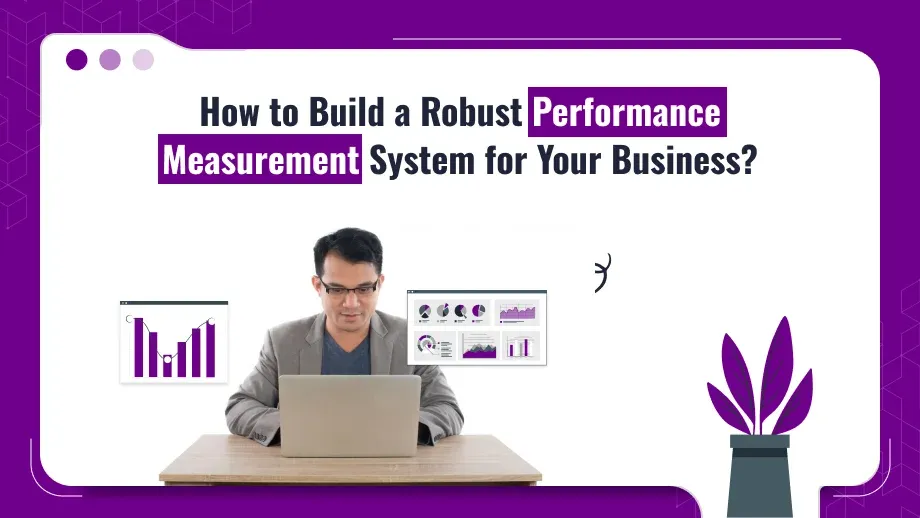Both terms have a connection in their focus, business management performance is focused on the management of the business process and performance of employees in order to achieve company objectives. performance management however, on the contrary hand is a broad concept that covers all the methods and systems created to enhance efficiency and effectiveness of an organization, which includes employees, processes and technologies.
Grab a chance to avail 6 Months of Performance Module for FREE
Book a free demo session & learn more about it!
-
Will customized solution for your needs
-
Empowering users with user-friendly features
-
Driving success across diverse industries, everywhere.
Grab a chance to avail 6 Months of Performance Module for FREE
Book a free demo session & learn more about it!
Superworks
Modern HR Workplace
Your Partner in the entire Employee Life Cycle
From recruitment to retirement manage every stage of employee lifecycle with ease.


Seamless onboarding & offboarding
Automated compliance & payroll
Track performance & engagement
Unlocking the Power of Business Management Performance
- performance management strategies
- 7 min read
- October 7, 2024

In today’s competitive environment of contemporary business management performance efficiency is an essential aspect which directly affects an organisation’s capacity to reach its goals. The most effective strategies for managing performance help businesses to align their personal and group goals to the organization’s overall mission and ensuring success across all areas.
This blog is going to dive into the key elements of organizational performance management and outline actionable methods for improving the efficiency of management in business as well as answering often asked questions regarding the management of performance.
What Is Business Management Performance?
This evaluation can benefit greatly from reviewing business plan examples, which provide a framework for understanding how successful organizations structure and achieve their goals. It involves evaluating effectiveness and efficiency of the company’s operations, which includes efficiency of staff, departments’ processes and corporate strategy overall.
Business management performance assures that all aspects of the company–whether one employee or an entire department – is working towards your company’s growth. This alignment will result in better productivity more effective decision-making and long-term increase in productivity.
Importance of Organizational Performance Management
The essence of organizational performance management is the process of setting up a framework whereby your business goals are regularly examined, evaluated and re-evaluated. It helps organizations adapt to external and internal issues successfully. Some of the key advantages include:
- Goal Alignment
Aligning employees’ objectives to corporate goals makes sure that every decision made is beneficial to the overall success of the organization. People are inspired when they realize that their actions impact the larger big picture.
- Continuous Improvement
Performance management promotes an environment that promotes a culture that is constantly improving, which allows teams and employees to frequently evaluate their performance and adjust as needed. This fosters a dynamic work atmosphere that is able to adapt to changes in the business environment.
- Enhanced Productivity
With clear performance goals and giving regular reviews, companies can boost efficiency. Employees are more motivated and focused with clear targets that they must meet.
- Data-Driven Decision Making
Performance management systems provide valuable details about how staff as well as departments perform. These data help managers to make educated decisions regarding promotion, allocation of resources and areas for investing or improving.
Transform your business outcomes with effective performance management tools.
Schedule a demo now and take the first step toward success!
Key Components of Business Management Performance
A well-designed performance management system is comprised of a number of key elements that together ensure the success of an organization. They include:
1. Clear Performance Metrics
The first step in assessing performance is the setting of specific, quantifiable performance indicators. The metrics must be in line with the goals of the organization’s strategic plan and divided into team and individual goals. With SMART goals – Specific, Measurable relevant, achievable, and time-bound — you’ll be able to create an outline of how to measure success.
2. Continuous Feedback and Reviews
Review of performance should not only be held once a year. In fact, companies should strive to give regular evaluation all through the entire year. It helps employees make immediate changes and creates an environment that promotes a culture that encourages openness and continuous improvement. Managers must hold frequent one-on-one meeting, offering constructive feedback and rewarding the achievements of employees.
3. Employee Development Plans
Management of performance is not only measuring current performance, it’s about encouraging further growth. Every employee needs an outline of their development plans that details the knowledge and skills required to progress within their job. Resources like AZ-900 Exam Dumps can help prepare for certifications that enhance their expertise and career growth. The investment in the development of employees does more than just improve personal performance, it helps to ensure the success of an organization.
4. Use of Technology
The implementation of a system for managing performance that is equipped with the appropriate technology is key for tracking performance indicators as well as conducting reviews as well as generating insight. HRMS applications such as Superworks will streamline the process and ensure that the information on performance is readily accessible and able to be used. Technology is also more efficient in interaction between workers and managers making sure that objectives and the feedback process is clearly defined.
5. Recognition and Rewards
In order to motivate employees to keep them motivated, companies should reward those who have performed well and praise them for their efforts. Recognition may take different kinds, ranging from cash bonuses to a public acknowledgement. An effective strategy for recognition ensures that employees are valued and motivated to keep doing their job at the highest level.
Performance Management Strategies for Business Success
To improve performance in management, businesses must adopt strategies specifically tailored to their demands. Here are a few key performance management strategies.
1. Find a way to align individual Goals and Organizational Goals
The most efficient methods of managing performance is to ensure that each employee’s goals are in line with the larger corporate goals. This ensures that team members are working towards the same and create synergies across different departments.
2. Implement 360-Degree Feedback
The 360-degree feedback system is the process of collecting feedback from multiple sources such as employees, subordinates and the manager. This approach is holistic and provides complete information about employee performance that highlights strengths and areas to improve from multiple angles.
3. Focus on Continuous Development
Continuous learning is central to the heart of the business management performance plan you implement. Spend money on training programs as well as coaching and mentorship to ensure that employees possess the necessary skills to fulfill the job successfully. Promoting a growth mindset will aid employees in becoming more flexible and adaptable to their jobs.
4. Regularly Review and Update KPIs
Key Performance Indicators (KPIs) are an essential element of measuring success in business. But, they shouldn’t be in a static state. Check and revise regularly KPIs to ensure that they match the latest business trends. Making adjustments to KPIs can help the business be flexible and responsive to any changes in marketplace or to internal goals.
5. Foster a Culture of Open Communication
Communication is essential for any strategy to manage performance. Employees must feel comfortable talking about their business management performance, issues and plans with their supervisors. The culture of communication that is transparent can help to address problems before they become more serious and helps employees feel comfortable within their job roles.
How Technology Enhances Performance Management
Technology plays a crucial function in modern performance management system. Tools for software can streamline the procedure, making it simpler to set objectives, monitor performance, and offer feedback. Technology can help improve the effectiveness of business management performance of an organization.
- Automated Performance Tracking
Software will automatically measure key performance indicators, providing in-real-time information on employee performance and their progress towards objectives. Managers can quickly determine areas in need of improvement.
- Enhanced Reporting and Analytics
Performance management software provides detailed analysis and reports which make it easy for managers to make informed decisions based on data. When they analyze trends in performance organisations can find top performers in teams and individuals.
- Improved Communication
Most performance management platforms come with built-in communication tools that permit employees and managers to talk about objectives, feedback, as well as results directly on the system.
- Goal Alignment Across Departments
Technology assists in aligning goals across diverse departments, by establishing an open system in which all employees can be aware of the impact of their work on the overall goals of the organization.
Conclusion
Performance in business management is the foundation of a profitable business. Through the implementation of effective methods for managing performance, businesses can ensure that employee objectives are aligned with the goals of their organization, promote constant improvement and increase efficiency. Making use of technology, giving periodic feedback, as well as investing in the development of employees are the key elements of an effective system for business management performance.
When they take the proper method, companies can boost the performance of both teams and individuals and experience sustained progress and improvement. If you’re interested in improving your performance in the workplace, you should consider purchasing a complete software for business management performance, like Superworks HRMS which is specifically created to improve your process and help ensure that your team is operating in the best way possible.
FAQs
What's the distinction between the business performance of management and performance management for organizations?
How do you improve the performance of your employees? employee satisfaction?
Achieving effective performance management increases employee satisfaction by providing specific goals, ongoing feedback and the opportunity for growth. When employees are aware of what's required of them, and get frequent feedback regarding how they perform, they will feel more motivated and engaged to be a part of the company's performance.
Which are some of the frequently encountered issues with performance management?
The most frequent performance management challenges are:
- Insufficiently defined performance metrics
- Managers' inconsistent feedback
- The misalignment between individual and corporate objectives
- Lack of adequate resources to support employee growth To overcome these issues, you need the use of a systematic strategy for managing performance, which includes clear and consistent goals, periodic reviews, and continuous assistance is provided.
When should reviews of performance be scheduled?
Although annual reviews of performance are not uncommon, a lot of companies tend to have periodic reviews like every quarter or perhaps monthly. regular feedback sessions will ensure that employees have the ability to make swift improvements to their performance and result in improved performance.
What is the role of technology in managing performance?
Technology plays an essential part in the management of performance by helping to set goals, track the progress of employees, and improving communications between workers and managers. Technology also gives data and insight that allow managers to make better informed choices about the development of their workforce and performance.


